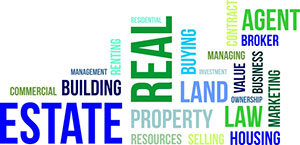Seven Tips for Making a Great Deal on Commercial Real Estate
When it comes to commercial real estate, how do you decipher the best properties and what separates the great deals from the not so great?
Check out the seven tips below for evaluating a good commercial property deal:
1) Learn What the Insiders Know
It's time to learn to think like a professional. Know that commercial property is valued differently than residential property. Commercial real estate income is directly related to its usable square footage, unlike individual homes. There's a bigger cash flow with commercial property. You should also know that commercial property leases are longer than on single family residences. Additionally, if you're tight on credit, come with case in hand as lenders for commercial property like to see at least 30% down before they ok a loan.
2) Map Out an Action Plan
Wisdom says have a game plan. How much can you afford? How much do you expect to make on the deal? Who are the key players? How many tenants are currently on board and already paying rent? How much rental space are you going to have to fill?
3) Learn to Recognize a Good Deal
Professionals in real estate know a good deal when they see one. How? They have an exit strategy...the best deals are the ones you can walk away from. It helps to have the sharp eye of a landowner - do you see damage that requires repairs? Know how to assess the risk and bring your calculator to make sure that the property meets your financial goals.
4) Get Familiar With Key Commercial Real Estate Metrics
The common key metrics to use for when assessing real estate are:
Net Operating Income (NOI)
The NOI of a commercial real estate property is determined by figuring out the property's first year gross operating income and then subtracting the operating expenses for the first year. You want to have positive NOI.
Cap Rate
A real estate property's "cap" – or capitalization – rate, is used to determine the value of income producing properties.
Cash on Cash
Investors in commercial real estate who use financing to purchase their properties often use the cash on cash formula to compare first year performance of competing properties. Cash-on-cash takes the fact that the investor in question doesn't require 100% cash to buy the property into account, but also accounts for the fact that the investor will not keep all of the NOI because he or she must use some of it to make mortgage payments. To uncover cash on cash, real estate investors must determine their initial investment.
5) Look for Motivated Sellers
Like any business, customers drive real estate. Your job is to find these customers - specifically those who are ready and eager to sell below market value. Deals are often attached to a motivated seller. This is someone with a pressing reason to sell below market value. Negotiations don't come easy to an unmotivated seller.
6) Discover the Fine Art of Neighborhood Stalking
A great way to learn about a commercial property is to study the neighborhood it's located in by going to open houses, talking to other neighborhood owners, and looking for vacancies.
7) The Short and Long of it
By and large, finding and evaluating commercial properties is not just about stalking neighborhoods or getting a great price. At the root of taking action is basic human communication. It's about building relationships and rapport with property owners so they feel comfortable talking about the good deals - and doing business with you.
SEE ALSO:
- Sellers
- Buyers
Have more questions? Feel free to leave a comment or contact us